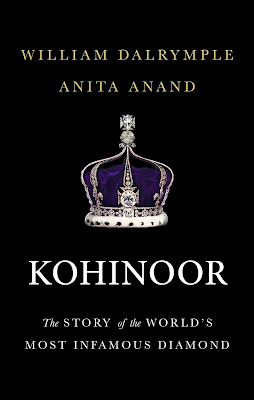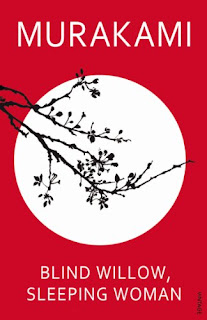Reams of religious scriptures proclaim humans as the most intelligent and most special of creations favored by 'God'. However, we humans have time and again proved ourselves to be unworthy of such adulations. Also, no one that has ever observed fellow lifeforms on this planet would entertain such naïve beliefs. For, every lifeform has its own fair share of vices and virtues. While we humans have been displaying more vices than virtues these days, the animal kingdom throws up a pleasant surprise with its noble qualities every now and then. I was a lucky witness of one such surprise this morning.
Just as I was having my breakfast at a roadside eatery, I saw two crows scavenging for food from a bin kept nearby for disposing leftovers. Wanting to feed them, I took a small piece from my food and threw it towards them. Agitated, they flew away and took refuge on a compound wall. Assessing whether I posed a threat, and assured that I wasn’t, one of the crows came down to the place where I had thrown the morsel, while the other remained perched on the compound wall, watching my moves.
The bigger and braver crow that came down examined the food. Satisfied that it was just food and no harmful projectile, it picked the morsel and went back to the wall in one swift move. Sitting on the wall, our brave crow gulped down the food little by little. Seeing that made me happy at getting an opportunity to feed them. There was even a faint whiff of ego for my having been the only one in the whole bunch of people to look at those crows and give them food. But what happened next made that ego vanish.
As the brave crow was finishing eating, the other crow on the wall started cawing. I am not an ornithologist and definitely no mythical character capable of understanding the language of birds, but I could clearly make out his – or, was it a her?! – cry for food. As the cawing continued for a few seconds, our brave crow walked close to his hungry companion. Turning the head towards the other and widely opening his dark beak, he let the other crow partake the half-swallowed food.
Now, we have all heard or even seen how the mother bird feeds her brood through regurgitation. But two fully grown birds sharing food with one another in the same fashion? That was a first to me, which made me both happy and contemplative. If such ‘less-sentient’ creatures like crows could behave with such care and compassion, why can’t we?! We have made huge pedestals and glorious tales for concepts like Nobility, Care, Compassion, Empathy, Sympathy, Understanding and What-Not! But have we realized that they should indeed have been our routine ways of life?
What if we started treating one another with courtesy? What if we added compassion to all our interactions with our fellow occupants on this beautiful planet? How nice it would be if only we could lace all our words, thoughts and deeds for and with one another with basic decency? We don’t need to go hungry to feed another being, but what if we could share whatever little we have and stay content? How would the world be if we all behaved like that crow, not just mindful of our own personal needs but staying compassionate towards those much less fortunate than us?
As the famous author Scott Adams once said, we should all ‘remember there's no such thing as a small act of kindness. Every act creates a ripple with no logical end.’ Well, being a dreamer, I can’t help but imagine the whole planet being drowned in such pleasant ripples!
Just as I was having my breakfast at a roadside eatery, I saw two crows scavenging for food from a bin kept nearby for disposing leftovers. Wanting to feed them, I took a small piece from my food and threw it towards them. Agitated, they flew away and took refuge on a compound wall. Assessing whether I posed a threat, and assured that I wasn’t, one of the crows came down to the place where I had thrown the morsel, while the other remained perched on the compound wall, watching my moves.
The bigger and braver crow that came down examined the food. Satisfied that it was just food and no harmful projectile, it picked the morsel and went back to the wall in one swift move. Sitting on the wall, our brave crow gulped down the food little by little. Seeing that made me happy at getting an opportunity to feed them. There was even a faint whiff of ego for my having been the only one in the whole bunch of people to look at those crows and give them food. But what happened next made that ego vanish.
As the brave crow was finishing eating, the other crow on the wall started cawing. I am not an ornithologist and definitely no mythical character capable of understanding the language of birds, but I could clearly make out his – or, was it a her?! – cry for food. As the cawing continued for a few seconds, our brave crow walked close to his hungry companion. Turning the head towards the other and widely opening his dark beak, he let the other crow partake the half-swallowed food.
Now, we have all heard or even seen how the mother bird feeds her brood through regurgitation. But two fully grown birds sharing food with one another in the same fashion? That was a first to me, which made me both happy and contemplative. If such ‘less-sentient’ creatures like crows could behave with such care and compassion, why can’t we?! We have made huge pedestals and glorious tales for concepts like Nobility, Care, Compassion, Empathy, Sympathy, Understanding and What-Not! But have we realized that they should indeed have been our routine ways of life?
What if we started treating one another with courtesy? What if we added compassion to all our interactions with our fellow occupants on this beautiful planet? How nice it would be if only we could lace all our words, thoughts and deeds for and with one another with basic decency? We don’t need to go hungry to feed another being, but what if we could share whatever little we have and stay content? How would the world be if we all behaved like that crow, not just mindful of our own personal needs but staying compassionate towards those much less fortunate than us?
As the famous author Scott Adams once said, we should all ‘remember there's no such thing as a small act of kindness. Every act creates a ripple with no logical end.’ Well, being a dreamer, I can’t help but imagine the whole planet being drowned in such pleasant ripples!



























